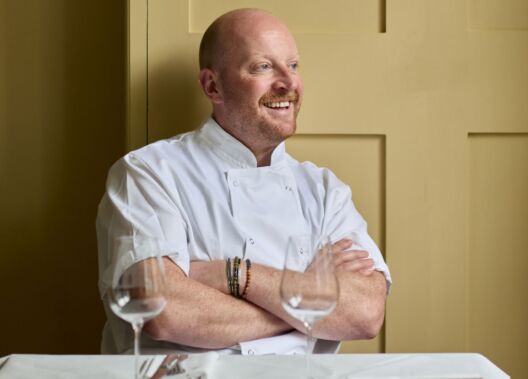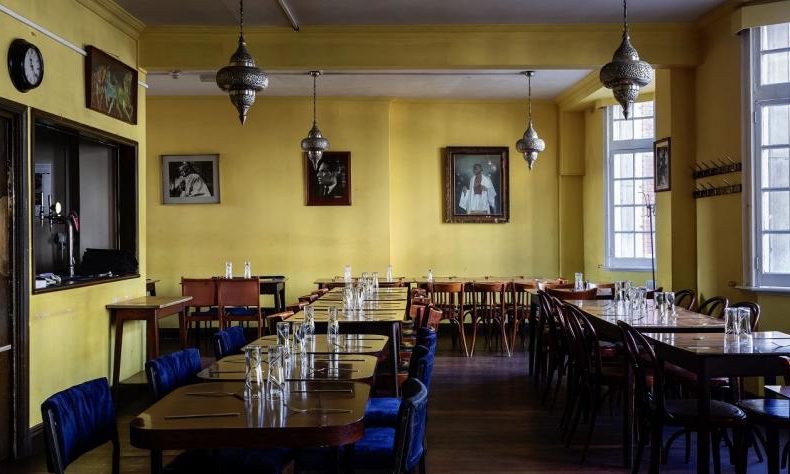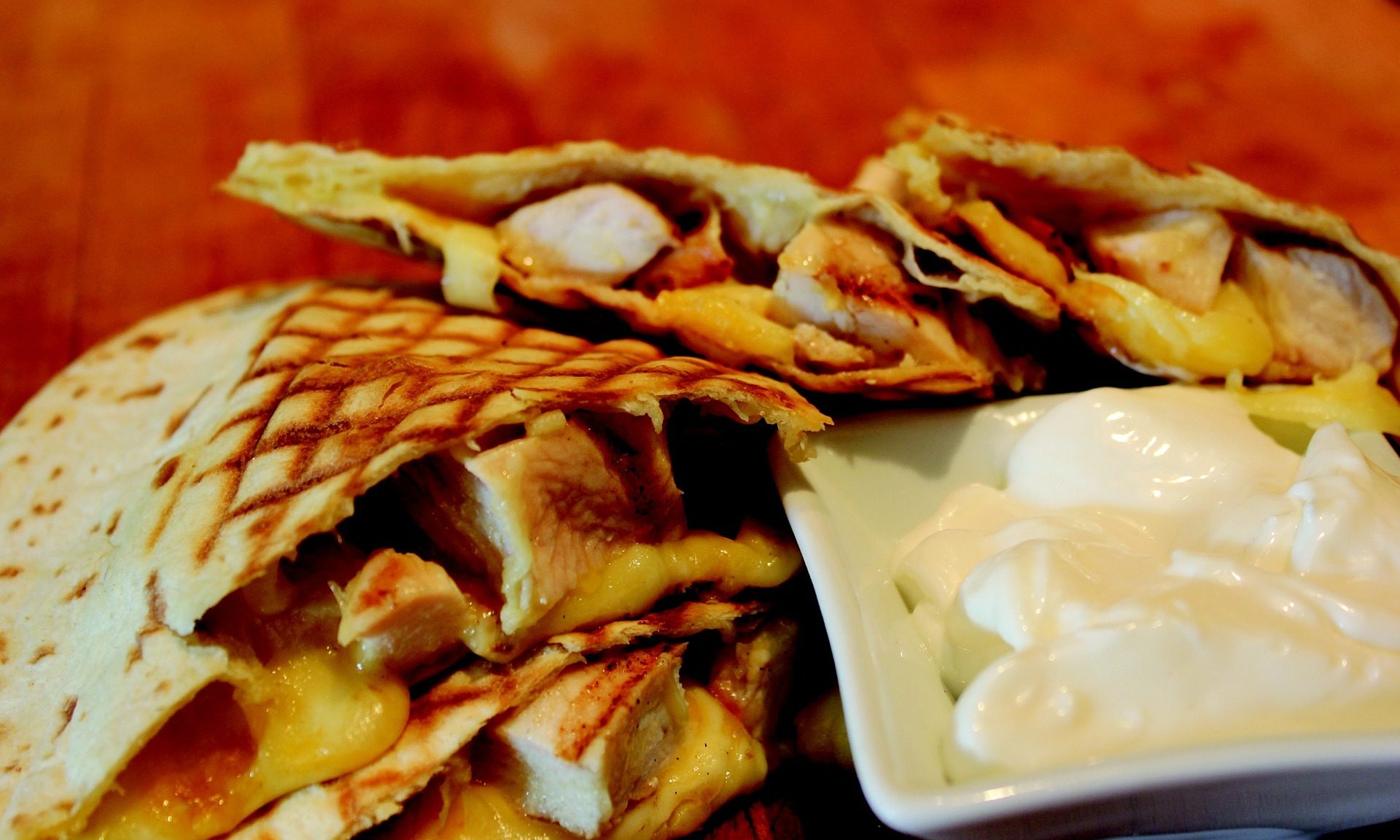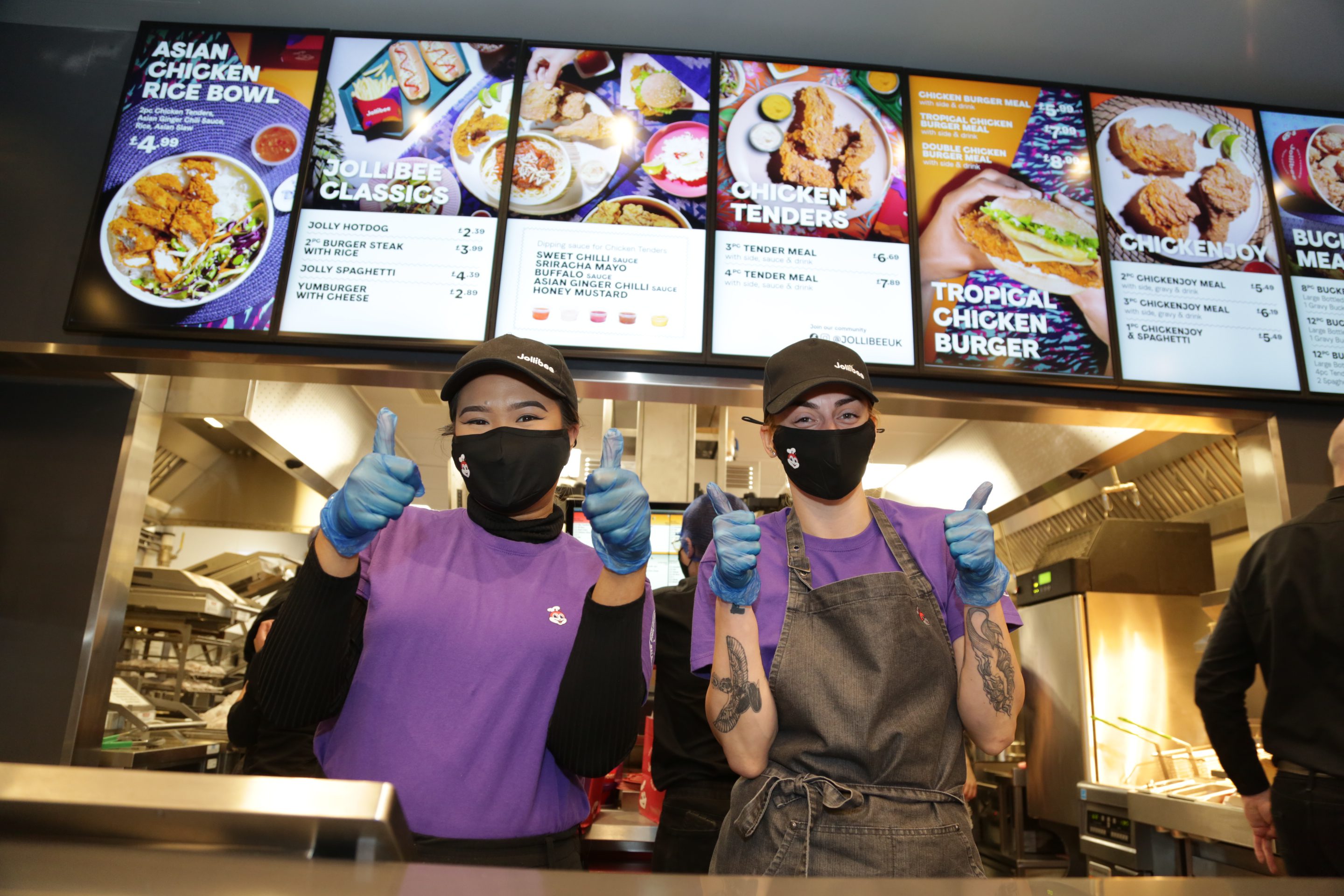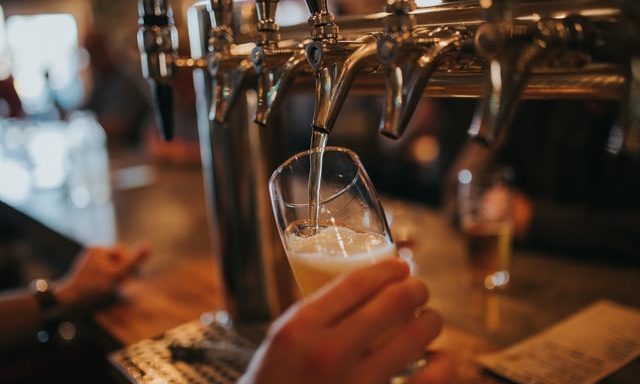Register to get 2 free articles
Reveal the article below by registering for our email newsletter.
Want unlimited access? View Plans
Already have an account? Sign in
Before the pandemic struck, businesses were lurching towards a new on-demand world, with rising apps making all manner of services available at the click-of-a-button. This was undoubtedly accelerated by Covid-19, as people sheltered at home and businesses looked for ways to adapt and continue to function despite the confines of government restrictions. It is no surprise, then, that new on-demand businesses have blossomed over the past 12 months.
The frontrunner is arguably food takeaway services, which have witnessed a boom like no other. UK households now spend an average of around five British pounds per person per week on takeaway meals, according to figures from Statista, while users are set to rise from 20 million this year to 23.1 million by 2024.
In addition, over 600 new food businesses were created by Britons on furlough, according to a new report from The Accountancy Partnership. The number of registrations by those made redundant increased by a third from last year to create 1,450 new companies, signalling a wave of new start-ups. But just how have these entrepreneurs looked to capitalise on the ever-growing market?
Gourmet2Go is a one such start-up, an ordering platform for restaurants, pubs and chefs, with a penchant for establishments that serve high quality and even Michelin-starred foods. The platform was founded by young entrepreneur, George Thwaytes, who wanted a slice of the ever-growing delivery app pie. “I wanted to contribute to this market, but at the same time explore how to differ from what the mainstays are doing,” says Thwaytes.
The idea came from speaking to an unnamed chef who provides “just below” Michelin-starred food. “He was frustrated because customers would go on the apps that we all know, and have to wade through hundreds of different restaurants before they found his restaurant. So he had a conversation with me and said, ‘Do you think you can go away and do a business plan and have a think about whether it’s possible to create something a little more niche for these high-end restaurants, something that narrowed down the field of what was just local?”
This was last July, says Thwaytes, who afterwards conducted extensive market research into the delivery market, examining the current apps’ offerings, prices, customer issues, and interfaces. “We aren’t looking to be a direct competitor,” he says, “but we thought that this market has so much to offer, and why not try something different?”
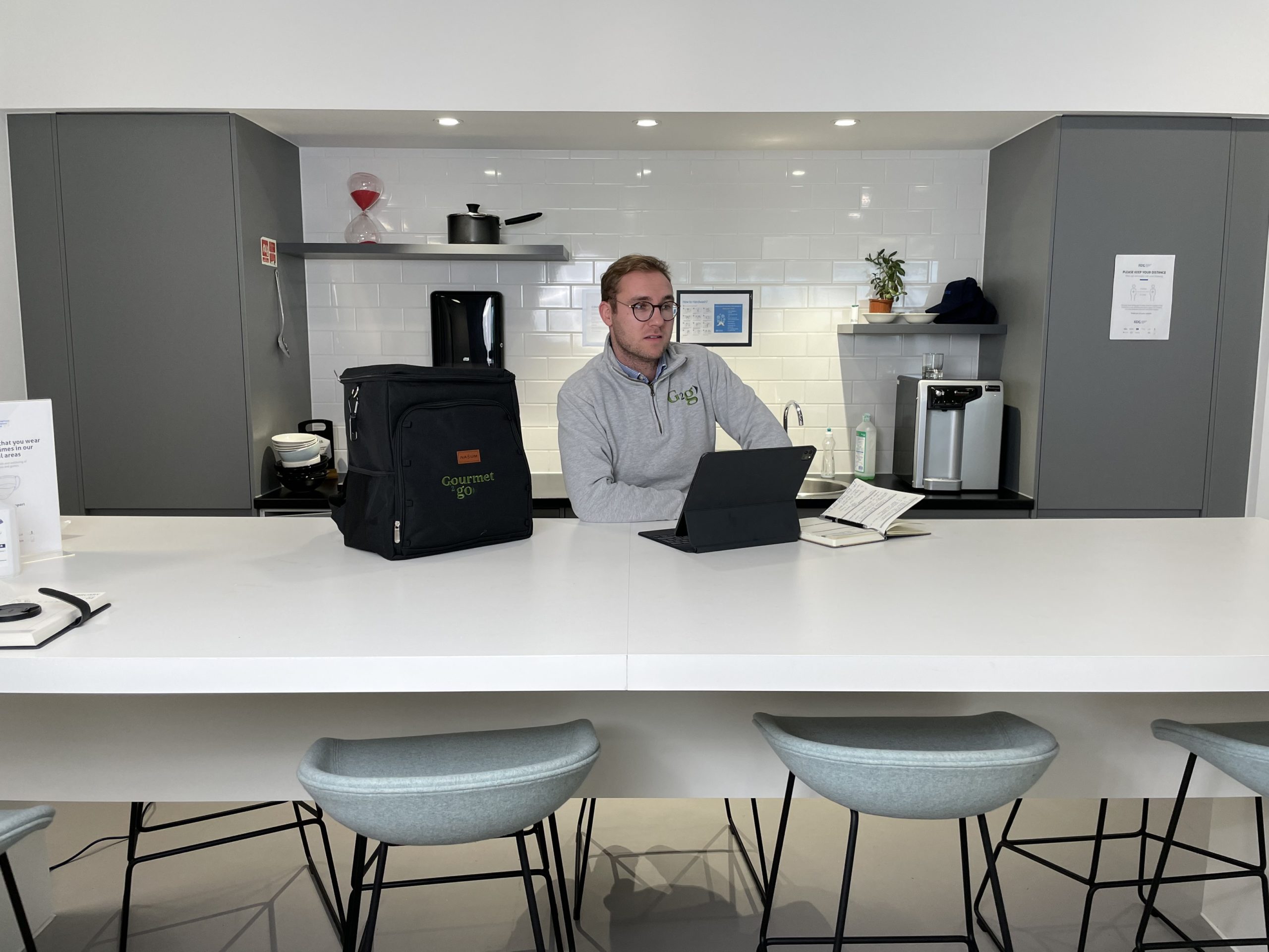
The new platform comprises the customer app, the driver’s app, an admin panel and an app for managers. As with the majority of delivery giants, Gourmet2Go customers can browse through the different cuisines on offer in their area – in this instance, however high-level vetting is undertaken by the platform in a bid to narrow its offering to the high-cuisine establishments that are local.
“We do a lot of research. We will spend hours looking at the restaurant’s menu, the pricing scales, the type of food they’re offering, the pictures they put on instagram, the reviews they put on TripAdvisor…it gets to a point where we have had offers of people sending samples to us. That’s the extreme, though.”
All the above findings will be examined before the platform agrees to take an establishment on. “We wanted to provide a platform that does have this sense of exclusivity. It just helps us as well, as we’re just not going to have 30 or 40 good places. It’s about the top of the top, and our brand is the key towards all of this. If you want to be on a high-market, high-ended app, then come to us, and on the flipside, we thought we could offer something new to customers who fancied high-end cuisine at home. We try to pick the best of the best.”
He adds: “It’s about premium food, high-quality, and I did feel there was a gap in the market for platforms wanting to circle this. For example, I looked at the market and understood that the top of the top in London is the ‘supper’ category.”
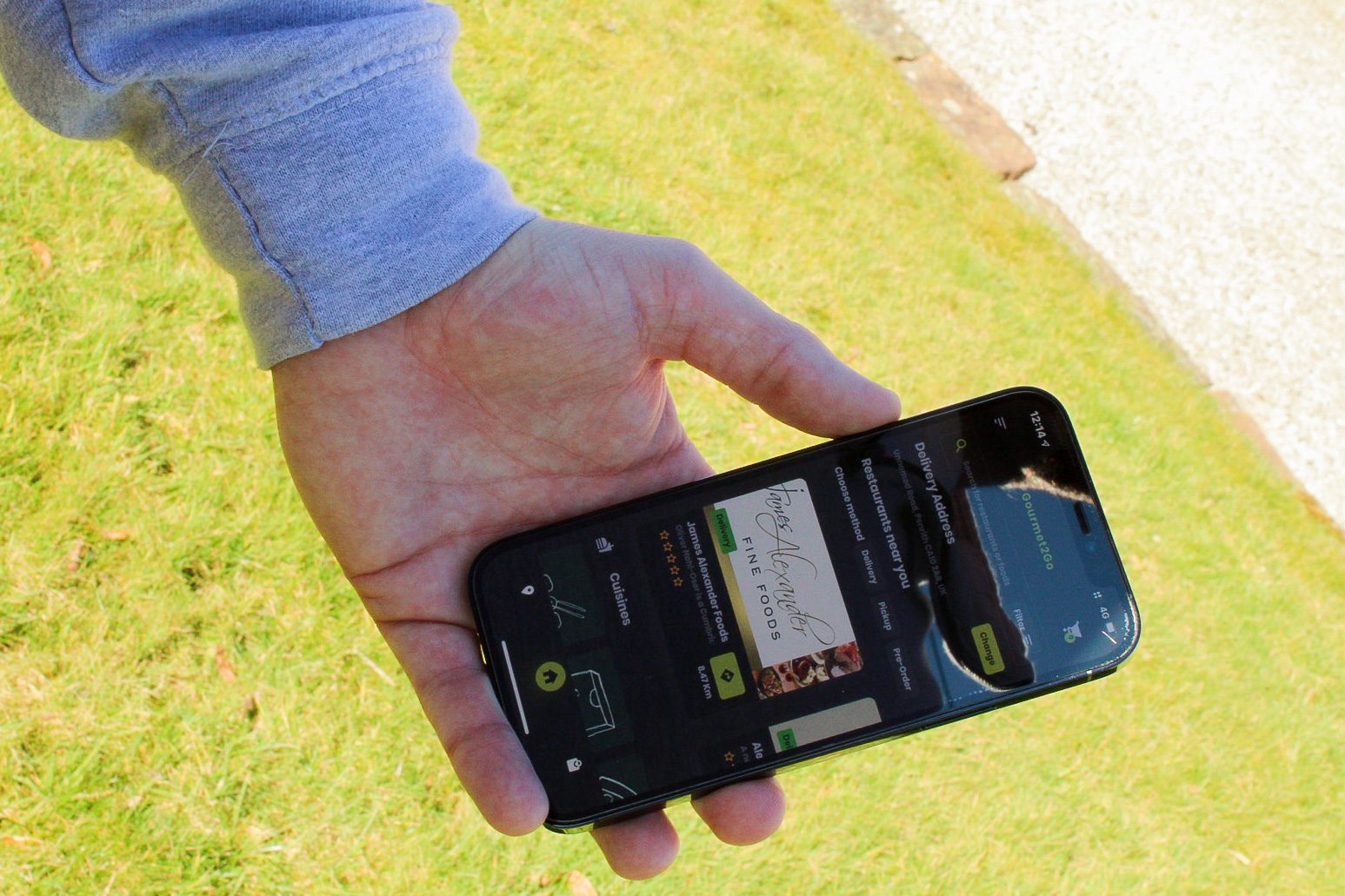
Just how exclusive is the platform? “We’d obviously like to have good quality Michelin-star restaurants on there, but we also want to open up to restaurants that haven’t quite made that bracket, and still deserve the same sort of listing. We’re not suggesting it’s a Michelin-starred only platform, but at the end of the day we want to work with people who have top quality cuisine and care about what they’re offering.” He says the business realised that across the UK, there was “definitely a market for it”. “Take Just Eat, for example – yes, they do have listings that are of this premium quality, but next to that they also have McDonalds,” he says.
Thwaytes adds: “As we all know, throughout Covid the hospitality industry has in particular been incredibly damaged. Though the government has supported them as best it can, we saw this as an opportunity to give businesses a boost. Coming out of Covid is going to be a critical time for these establishments, and we didn’t want them to have to pay the majority of their profits back into a platform.”
Was the idea kickstarted by the pandemic itself, or an idea that would have flourished without it? Thwaytes says: “Well I was actually training to be a lawyer and was let go in January of last year, just before the pandemic, so I went off to do a business course. I knew I wanted to set up something that was foodie-related. So I was examining the market when Covid first hit, and spent a lot of time on my business course doing an analysis of the food industry and how it was being affected by the pandemic, and how consumer habits were rapidly changing because of that.”
Thwaytes reveals he looked at the “immense growth” in the takeaway market and industry. Between 2020-21, online food ordering revenue is forecast to increase by 42.3%, reaching almost £2.3bn, according to research from Ibis World. Thwaytes adds: “Obviously the pandemic hit and it really took off. So whilst the idea came from me being a big “foodie”, it also came from doing my course and looking at the industries that have been hardest hit by the pandemic.”
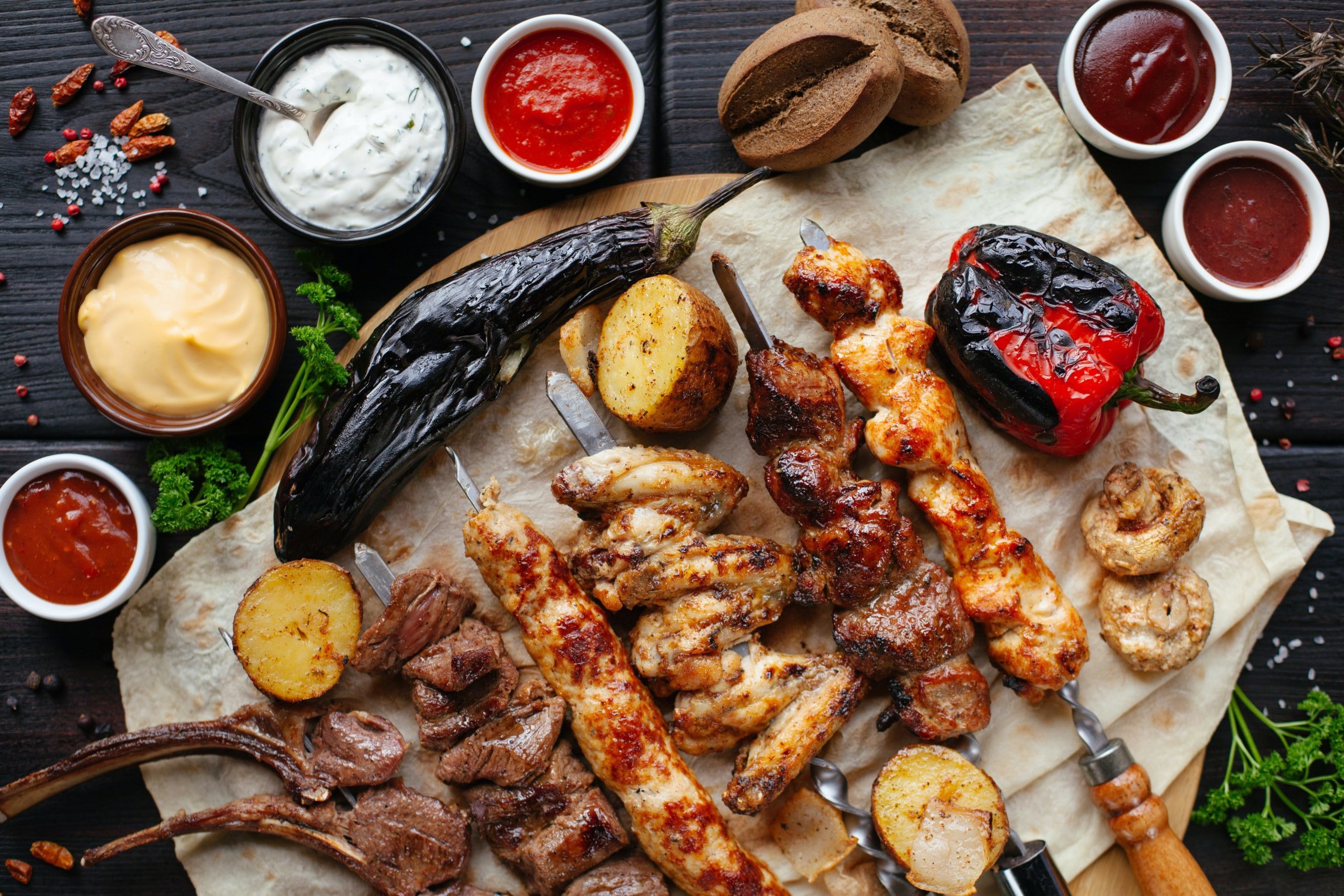
Despite the uncertainties of these times, Thwaytes was confident in setting up the business. He notes that “regardless of the pandemic, whether it happened or didn’t, I believe this industry was still going to grow and keep growing”. “We undoubtedly live in an on-demand world, and that’s the direction many industries were heading before the pandemic,” he says. “And I think Covid has made businesses look at the market from a different perspective – look at the other platforms out there, look at what’s being offered and what’s drawing in consumers.”
He adds that “going ahead, it’s really about: ‘how can we get these businesses up and running again?’ We want their profit margins to go through the roof. On top of that, I believe Covid is not going to disappear. We know that. And we were discussing recently, we’d rather have 10 of our best friends round to the house and order a proper gourmet meal that’s already cooked and enjoy it in the garden.”
Is the popularity and ongoing growth of these platforms here to stay post-pandemic? “Yes, absolutely. And I think, for example, our platform has helped unlock the idea that gourmet food and fine dining is accessible at home. It’s made people think differently about how they can experience things.”
He says that the restaurant experience will still remain important post-reopening, adding: “I would still encourage people to go out, of course. There is something so special about going on a night out to a nice restaurant, and to have that collective experience. However, if we’re given that option to do this at home, people can still embrace that”.
Noting that the gourmet-at-home concept is relatively unexplored, he adds that he does think it’s “something that not a lot of people would have really even thought about pre-Covid. But we’re in a different world now and people are opening up to the options and experiences that have been unlocked by the pandemic”.
Nonetheless, Thwaytes doesn’t believe that the takeaway industry will become saturated post-pandemic. “I believe it is just going to keep growing and growing. It will never disappear now. It’s on a linear track. And prior to Covid, if you look at the figures between 2018 and 2019, the industry doubled. I genuinely have no doubt it will double again. It is a market that will not dissolve.”
He concludes: “Because of this, I think we need to give restaurants that don’t typically manage takeaways alongside restaurants an affordable option to do it. It needs to work for them, and I think in many ways the industry has really opened up in this sense.” As he notes, the growth of new delivery platforms, whatever their niche, will “ultimately bolster the restaurant trade, which is something that’s desperately needed as we all emerge from this”.


